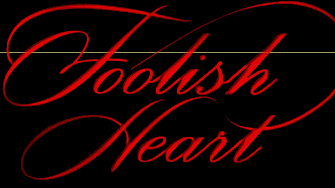|
|
|

UPDATE: Foolish Heart will re-air on CBC
Sept. 6th, 7th, and 8th @ 9 pm, one hour each night
For Finkleman,
Foolish
Heart represents a significant departure from his previous satirical
works. Yet, Foolish Heart retains Finkleman's dark, bleak outlook
on life, but because of the serious subject matter, and how love has become
mythologized in our society some may find the work unsettling.
For the first three episodes, Finkleman is strangely
absent, appearing only to introduce the series. Because of this,
the characters are allowed to tell their own stories, from that of Katherine's
(Larissa Laskin (Lapchinski)) illicit surrender to her passions, to the
intellectual and moral deterioration of an esteemed judge (Tony Nardi).

Foolish Heart puts more focus on emotion,
than linear storytelling. The characters motivations are not examined
in much detail, yet, we can see how they succumb to the power and destruction
of love, and its consequences.
Ironically, these fables of the pitfalls of "love" are intercut with excerpts (and often full performances) of love ballads from the 1940's and 50's, the age of the most blatantly romanticised Hollywood stories.
When asked why he would make a series focusing on the negative aspects of love, Finkleman replied that "you've seen the happy side a million times before, on movies and on television". Foolish Heart is an attempt to put love into perspective.
The series concluded on Sept. 8th, 1999 with Finkleman's character, "Peter" being put on trial for his selfishness and pretensiousness, followed by a spoof on a 1940's Cary Grant film, where director George Findlay (Finkleman) gets snowed in with Kate (Sarah Strange), a seductive but distant actress.
Visit CBC's Official Foolish Heart Site
Review of Foolish Heart (from The Globe and Mail)
Email Jennifer N. Scott (Associate Producer - Foolish Heart)
Back to La Casa di Federico Fellini